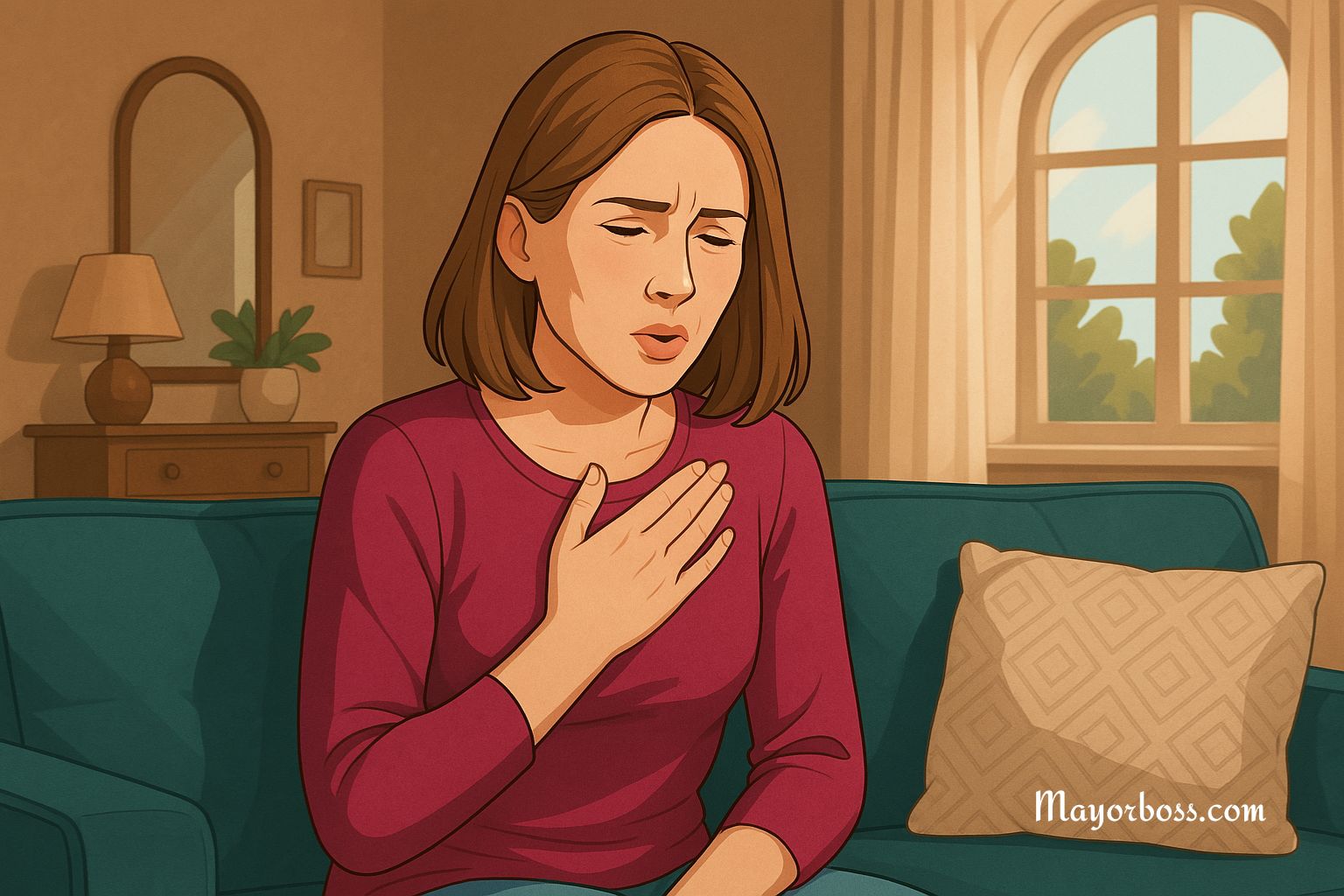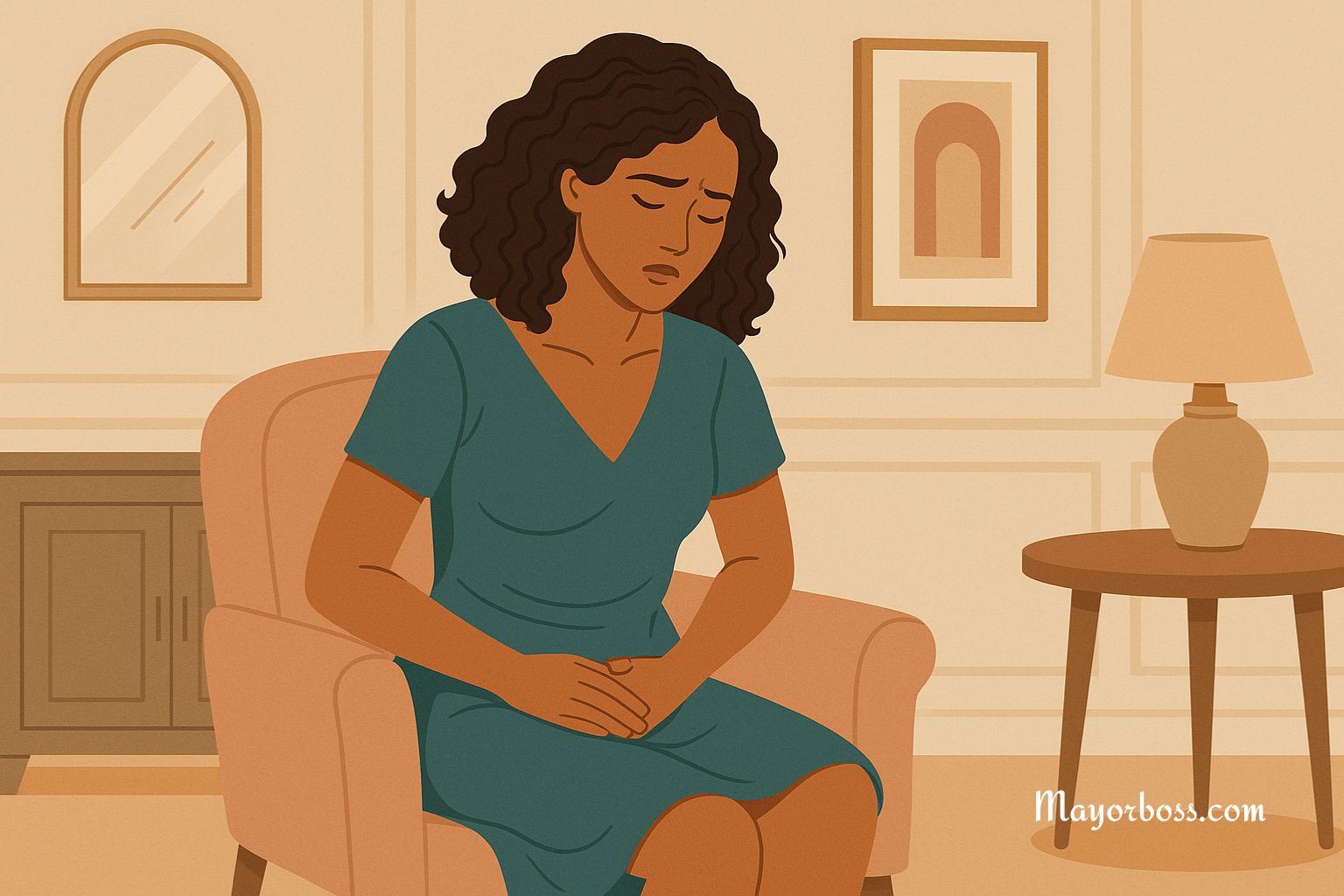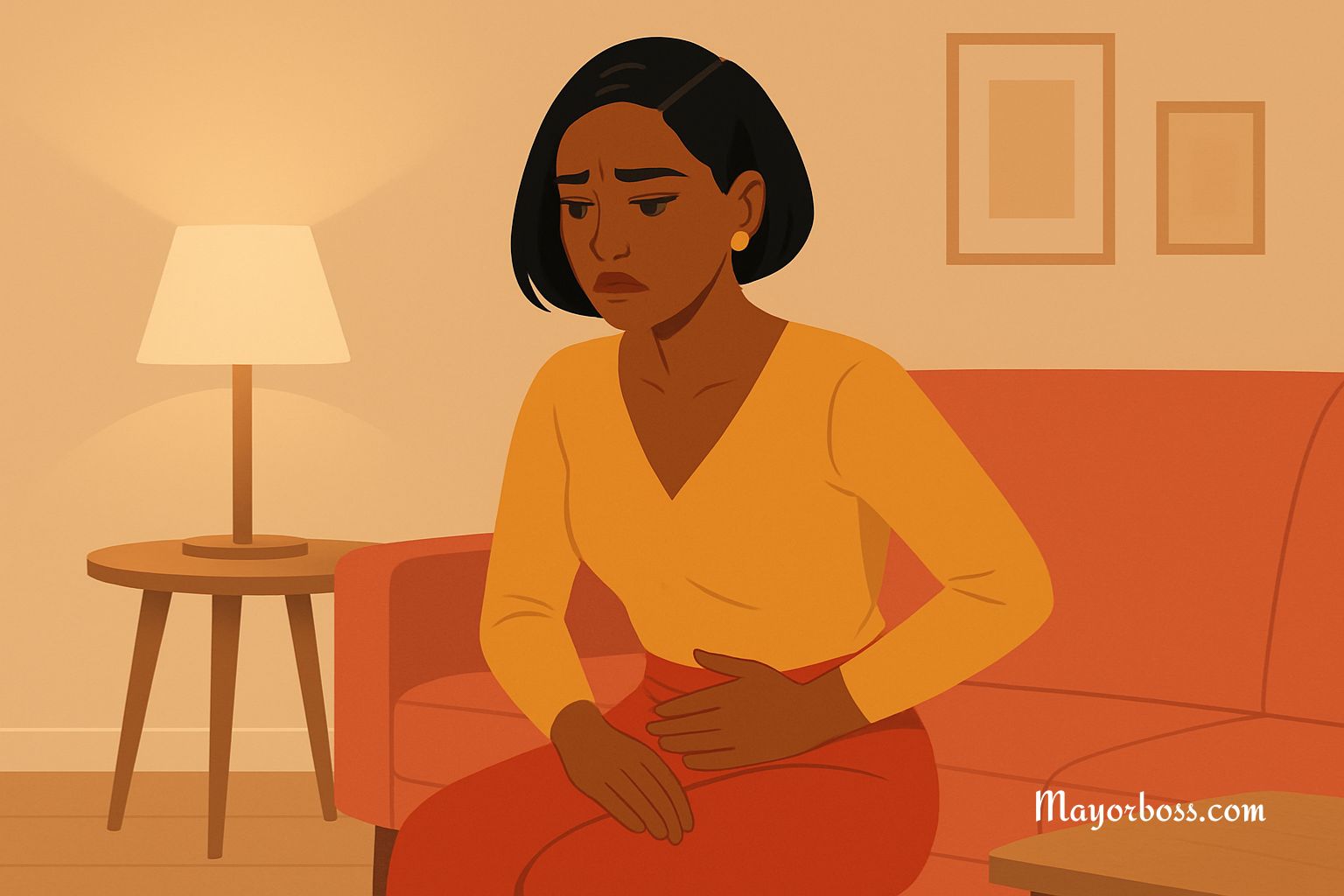7 Signs You May Have an Ovarian Cyst
Ovarian cysts are fluid-filled sacs that form on or inside the ovaries. Most of the time, they’re harmless and go away on their own. In fact, many women don’t even know they have one. But sometimes, ovarian cysts can cause symptoms that shouldn’t be ignored.
Dr. Iroko Anita explains, “Your ovaries are an important part of your reproductive system. When a cyst grows too large, doesn’t go away, or causes pain, it’s important to pay attention to the signs and talk to your gynecologist or other doctor.”
Here are 7 common signs that you may have an ovarian cyst:

Signs of ovarian cysts
1. Pelvic pain that may come and go
One of the most common symptoms of an ovarian cyst is a dull or sharp pain in the lower belly, usually on one side. You might feel it all the time or only during certain activities like exercising or having sex.
Tip: If the pain is sudden and severe, it could mean the cyst has burst or twisted—this is a medical emergency.
2. Bloating
Many women experience bloating right before their period, but if you’re bloated more often than usual, it could be a sign of an ovarian cyst. A cyst can make your lower belly feel bloated or swollen. You might feel full faster when eating.
3. Abnormal vaginal bleeding
Vaginal bleeding is considered abnormal if it occurs outside of your normal menstrual cycle. This can include spotting between periods or bleeding after sex. It may also be heavier than usual or last longer than normal. If you have irregular vaginal bleeding, it could be a sign of something serious, so it’s important to see your gynecologist right away.
4. Nausea and vomiting
If the cyst is twisting an ovary, it can cause severe pain along with nausea and vomiting. Many women compare the pain to morning sickness or the flu, so it’s important to see your doctor to rule out other possibilities.
5. Pain during sex
Intercourse shouldn’t be painful, so if you’re experiencing pain during sex, it could be due to an ovarian cyst. Endometriomas, for example, can cause deep pain during penetration.
6. Difficulty emptying your bladder or bowel
If the cyst is pressing on your bladder, you may feel like you have to urinate more frequently. You may also have difficulty emptying your bladder completely. Similarly, if the cyst is pressing on your rectum, you may experience constipation or have difficulty having a bowel movement.
7. A dull ache in the lower back and thighs
This is usually caused by an enlarged ovary pressing on nerves in your pelvis, resulting in referred pain in your lower back and thighs.
When to See a Doctor
Dr. Iroko Anita says, “If you notice any of these symptoms—especially if they’re new, painful, or getting worse—it’s a good idea to see a gynecologist or your healthcare provider. They can do an ultrasound or blood test to check for cysts.”
Also, go to the emergency room right away if you:
- Have sudden, sharp belly pain
- Feel dizzy or faint
- Have a fever and vomiting
These could be signs of a burst cyst or a twisted ovary, both of which need fast treatment.
LEARN MORE: 12 Home Remedies For Ovarian Cysts
How are ovarian cysts diagnosed?
Ovarian cysts are typically diagnosed with a physical exam and an ultrasound. During the physical exam, your doctor will feel your abdomen for any growths or unusual masses. The ultrasound will help to determine the size and type of the cyst.
Will I need to have surgery to remove an ovarian cyst?
Most women with benign (non-cancerous) ovarian cysts will not need surgery to remove them. However, if you have a large ovarian cyst or a complex ovarian cyst, you may need to have surgery to remove it.
Can I prevent ovarian cysts?
There is no surefire way to prevent all types of ovarian cysts from developing, but there are some things you can do to lower your risk. These include maintaining a healthy weight, avoiding hormone therapy, and using birth control pills. If you have PCOS, managing your condition with medication may also help prevent new cysts from forming.
Takeaway
If you think you might have an ovarian cyst, it’s important to see a gynecologist so that they can properly diagnose and treat you. While most ovarian cysts are benign (not cancerous), some can cause serious symptoms such as pelvic pain or pressure, bloating, nausea, and vomiting—especially if they rupture. If you experience any of these symptoms, be sure to schedule an appointment with your gynecologist today.






